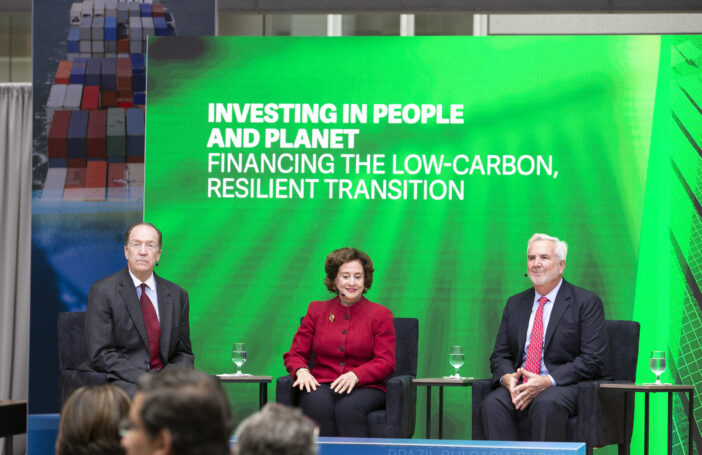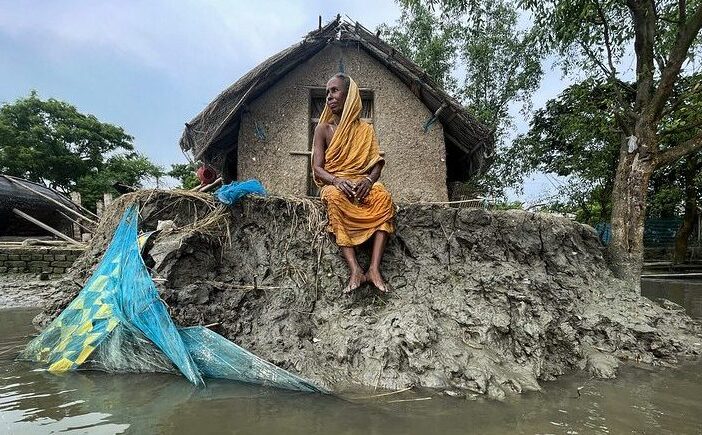A new book on the World Bank and global public goods
Many would argue that international development assistance needs to take as an explicit and principal objective the provision of global public goods important for development. And many look to the World Bank to play a leadership role in this regard. But does the World Bank put the delivery of global public goods anywhere near the heart of its operations?
Warren Evans and Devpolicy Associate Director Robin Davies have gathered diverse perspectives on this question in a new book, Too Global to Fail: the World Bank at the Intersection of National and Global Public Policy in 2025 (summary blog here), which forms part of the World Bank’s Directions in Development series. It contains views from former senior staff of the bank, young professionals inside and outside the bank, academic researchers and others.
The book argues that, going forward, the Bank should work at the intersection of national and global public policy. The key to success is to create incentives within the Bank for the pursuit of global public goods through mainstream country operations, rather than merely through global programs.
On the blog this week, Oxfam’s Vanuatu Country Director Colin Collett van Rooyen emphasised the importance of supporting disaster preparedness projects in Pacific island countries. Tess Newton Cain praised the Pacific Catastrophe Risk Insurance pilot. And with huge hits to Vanuatu’s agricultural and tourism sectors, Matthew Dornan suggests that the costs of the cyclone could be $300 million.
Defining corruption
In a new article for the Journal of Development Studies (summarised here), Devpolicy Research Fellow Grant Walton explores how we think about corruption using focus group discussions and a nine-province household survey in PNG. Whereas academics and donors tend to define corruption as the abuse of office, the results show that, especially in rural areas, ordinary people often think of corruption in terms of individual or institutional decay, and involving non-state actors, such as churches or mining companies. If anti-corruption campaigners focus only on state representatives they run the risk of undermining local support for anti-corruption initiatives, particularly where the state is at its weakest.
UPNG partnership
We welcomed the University of Papua New Guinea Vice Chancellor and Dean of the School of Business Administration to ANU last week to sign an MOU to develop the partnership between ANU Crawford School of Public Policy (of which Devpolicy is part) and the UPNG School of Business Administration.
We also welcome Visiting Fellow Michael Cornish to our team as our UPNG Partnership Coordinator. Michael is based in Port Moresby, funded through the Australian aid program, and is working at UPNG to promote the Crawford-Business School partnership.
Evaluation forum
Join us on 29 April for our third annual forum to discuss Australian aid evaluations. The forum will focus on two recent Office of Development Effectiveness (ODE) reports on Australia’s response to humanitarian crises (in the Horn of Africa and Syria) and on DFAT’s new Performance of Australian Aid 2013-14 report.
Presenters will include authors of the reports, DFAT management and external discussants. Jim Adams, Chair of the ODE’s Independent Evaluation Committee, and Dereck Rooken-Smith, ODE Head, will also speak. Register here.
Aid budget breakfast
How will the government cut the aid program by 20 per cent? The 2015 budget will be perhaps the most important ever for aid. We’ll be holding our third annual aid budget breakfast the morning after the budget, on Wednesday 12 May. Register here.
Upcoming events
Australian aid evaluations: program performance and humanitarian responses
Wednesday 29 April, 9.30am – 1.30pm. Register here.
2015 aid budget breakfast
Wednesday 13 May, 9am – 10.30am. Register here.
2015 PNG Update
18-19 June, University of Papua New Guinea. Details here.
Blog highlights
Long-time WHO staffer says WHO ‘cannot be reformed’
‘Aid can’t transform Solomon Islands… but it can help’
Behavioural economics and the 2015 WDR
On the blog
Vanuatu after Cyclone Pam: the economic impact by Matthew Dornan
Defining corruption where the state is weak: the case of PNG by Grant Walton
What now for the debate on the future of Pacific regional architecture? By Greg Fry
Vanuatu: a brave nation responds to the storm by Colin Collett van Rooyen
How Australia and the WHO could do better on global health by Jim Tulloch and Ashlee Betteridge
What the state of politics in Solomon Islands means for aid by Terence Wood
Reverse HIPC mooted for aid liabilities by Matthew Morris
Too global to fail: the World Bank at the intersection of national and global public policy by J. Warren Evans and Robin Davies
Can behavioural economics improve the impact of development programs? Reflections on the World Development Report 2015 by Mariza Cooray-Dias
In brief
Is the Pacific Catastrophe Risk Insurance scheme an example of successful pooled service delivery?
Easter links: inequality, cash on delivery, SDGs, cultural values, Micronesian migration and more
Book review: Indonesia Etc. by Elizabeth Pisani
Australia gets on board the AIIB – but with caveats
Xanana Gusmão on conflict, development and sovereignty for Timor-Leste
Weekend reading and listening (plus a bonus talk to go to next week)
Funding for TB and malaria product development partnerships: Australia’s back
This is the fortnightly newsletter of the Development Policy Centre at Crawford School of Public Policy, The Australian National University, published every second Friday.






